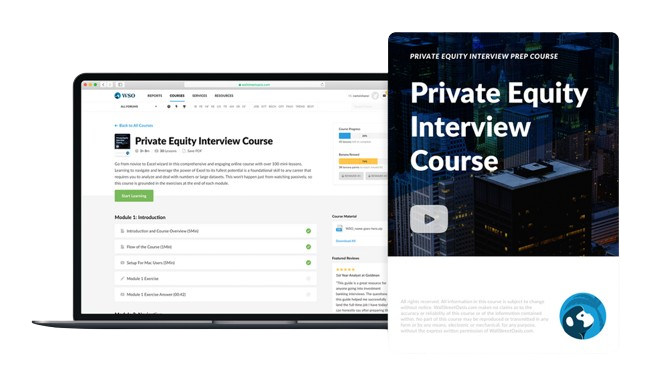Deal Origination
Refers to the process of sourcing deal opportunities for companies and is carried out by private equity, venture capital firms, and investment banks.
What Is Deal Origination?
Deal origination is the process of sourcing deal opportunities for companies and is carried out by private equity (PE), venture capital (VC) firms, and investment banks. It is also commonly known as deal sourcing.

It is the first step in generating deals and involves pitching deal opportunities to potential buyers. The process must include networking with contacts and extensive market research to succeed.
A firm can propose a competitive bid and generate deals through intermediaries by acquiring helpful market information and leveraging the proper connections.
With deal origination, it is the job of investment professionals at private equity firms, venture capital firms, and investment banks to identify new opportunities in the market.
These professionals help companies with mergers and acquisitions, corporate finance, and sell-side transactions.
One of the main goals is to maintain a large volume of deal flow, and some of the general steps involved are:
- Acquiring information about the current deals in the market to place a bid.
- Generating deals through a network of connections.
- Producing leads and maintaining relationships with investment advisors and intermediaries on the buy-side of deals.
- Gathering both buy- and sell-side opportunities for the firm.
Key Takeaways
- Deal origination, also known as deal sourcing, is the process of finding investment opportunities for firms like private equity and venture capital companies.
- There are a couple of different strategies where an investment firm can source new deals: inbound deal sourcing and outbound deal sourcing
- The traditional deal origination approach relies on direct relationships with company owners, while the online approach uses technology platforms to automate processes and expand reach.
- Successful deal origination requires a strong network, staying updated on industry changes, and understanding competition for valuable deals.
Deal origination strategies
The first important step for successful deal origination is for the investment firm to maintain a good reputation and cultivate and manage a vast network of connections. By doing these things, an investment firm can justify its credibility as an investment partner.
There are a couple of different strategies where an investment firm can source new deals.
Inbound deal sourcing
This process includes all transactions that flow into a firm through its entire network. The deals may come into the firm due to referrals, recommendations of portfolio members, and potentially even direct contact from founders.

Pros of inbound deal sourcing:
- In the initial stages of the deal origination process, utilizing the inbound deal sourcing strategy saves time and resources.
- Sometimes, the leads are pre-qualified, so they may have a higher probability of realization.
- Some of the most recent deal origination software (e.g., Mark to Market and Captarget) has been streamlined, making recognizing inbound opportunities easier. Usually, the process is very time-consuming.
Cons of inbound deal sourcing:
- Investment firms do not have as much control over the volume and quality of their leadership opportunities.
- The unpredictability of the volume and quality of leads makes it difficult for investment firms to generate accurate predictions and set goals for the future.
- Inbound origination is particularly competitive because companies who want investment opportunities will most likely reach out to many investment firms simultaneously.
- The size of the investment firm's network largely determines the success of inbound deal sourcing. As a result, smaller firms will struggle with this strategy.
Outbound deal sourcing
This process involves the actions of an investment firm trying to find potential deal opportunities.

Outbound origination requires generating a list of potential leads and directly reaching out to them. Most investment firms have a specialized group that carries out this process.
Pros of outbound deal sourcing:
- With outbound origination, a firm can control the volume and quality of the companies it pursues investment opportunities. This, in turn, generates consistent and quantifiable deal flow.
- Outbound origination creates proprietary solid deal flow because this sourcing process offers opportunities to find attractive companies earlier in their life cycles than other competition.
- Outbound sourcing teams can narrow their focus on opportunities that align with their goals and investment theses. Because of this, outbound sourcing generally has a high conversion rate for its deals.
Cons of outbound sourcing:
- Finding credible information about private companies is complex, and the process is highly time-consuming.
- Inbound sourcing usually takes precedence over outbound sourcing if it is plentiful.
Traditional vs. online Deal origination
Different strategies and processes might be deployed in traditional versus online deal origination contexts. Here's a detailed breakdown:
Traditional approach
The traditional approach of deal origination is the method that most investment firms rely on. However, this method requires an investment firm to utilize its direct relationships with the owners of companies.

A firm's success with the traditional approach depends heavily on the volume of its network. It will be highly competitive if a firm is reputable among investors and maintains a vast network of referrals and contacts.
These investment firms must have access to industry-specific knowledge in deals.
Online deal sourcing
This method is a more recent approach that is gradually taking over the traditional way. In particular, the online deal sourcing approach is popular among M&A firms looking for both buy- and sell-side deal opportunities.

Various financial technology companies provide these deal sourcing platforms, and investment firms use them to find leads and expand their networks.
There are a few advantages of using the online deal sourcing approach. These include:
- Broader reach: Online deal origination expands both the buyer's and the seller's audience. It allows investors and finance professionals to identify each other and eliminates the limitation of different geographic locations.
- Process automation: Deal origination platforms also automate some processes that typically take a long time to execute. Compared to the traditional approach, deal sourcing automation makes the process much quicker and more efficient.
The software also allows users to gather essential data that they can utilize to assess areas of the process they need to improve.
- Matching algorithms: With deal-sourcing platforms, an investment firm can specify what type of company they are targeting if they wish to carry out a buy-side transaction. The firm can indicate the target company's location, industry, and deal size preferences. Algorithms can then match the firm with deals that align with the firm's criteria.
- Measurable KPIs: Online platforms allow firms to keep track of quantifiable performance indicators, which is much more challenging than the traditional approach. Using measurable KPIs, firms can track and compare their performance to other firms in the market.
Successful deal origination
In order to create successful deal origination strategies, the following points must be taken into consideration:

1. Utilizing contacts
Despite the popularization of online deal sourcing, the network method is still prevalent, so investment firms must have contacts. These firms can make lists of the companies in their networks and categorize them by industry and size, among other things.
Keeping a record of a company's previous transactions is essential for investment firms to understand which businesses to contact when seeking specific insider information.
A detailed and up-to-date list of contacts is necessary for investment firms to maintain organization in their deal-sourcing ventures.
2. Network opportunities
It is essential for all deal origination efforts to network with financial professionals. Cultivating and maintaining professional relationships allows investment firms to expand their market visibility. This way, closing deals will be less complicated when a firm is already familiar with potential buyers.
3. Following industry changes
Market conditions are constantly changing, so investment firms must be attentive and knowledgeable about these changes and how they affect their industry.
An example of an industry change would be the emergence of new businesses, which can generate more competition for the firm.
Keeping up with industry trends and changes allows investment firms to build their deal-sourcing strategies around accurate and up-to-date information.
4. Understanding the competition
Investment firms constantly compete for the same insider information from contacts and deal opportunities. This is one reason why investment firms must maintain a good public image.





or Want to Sign up with your social account?